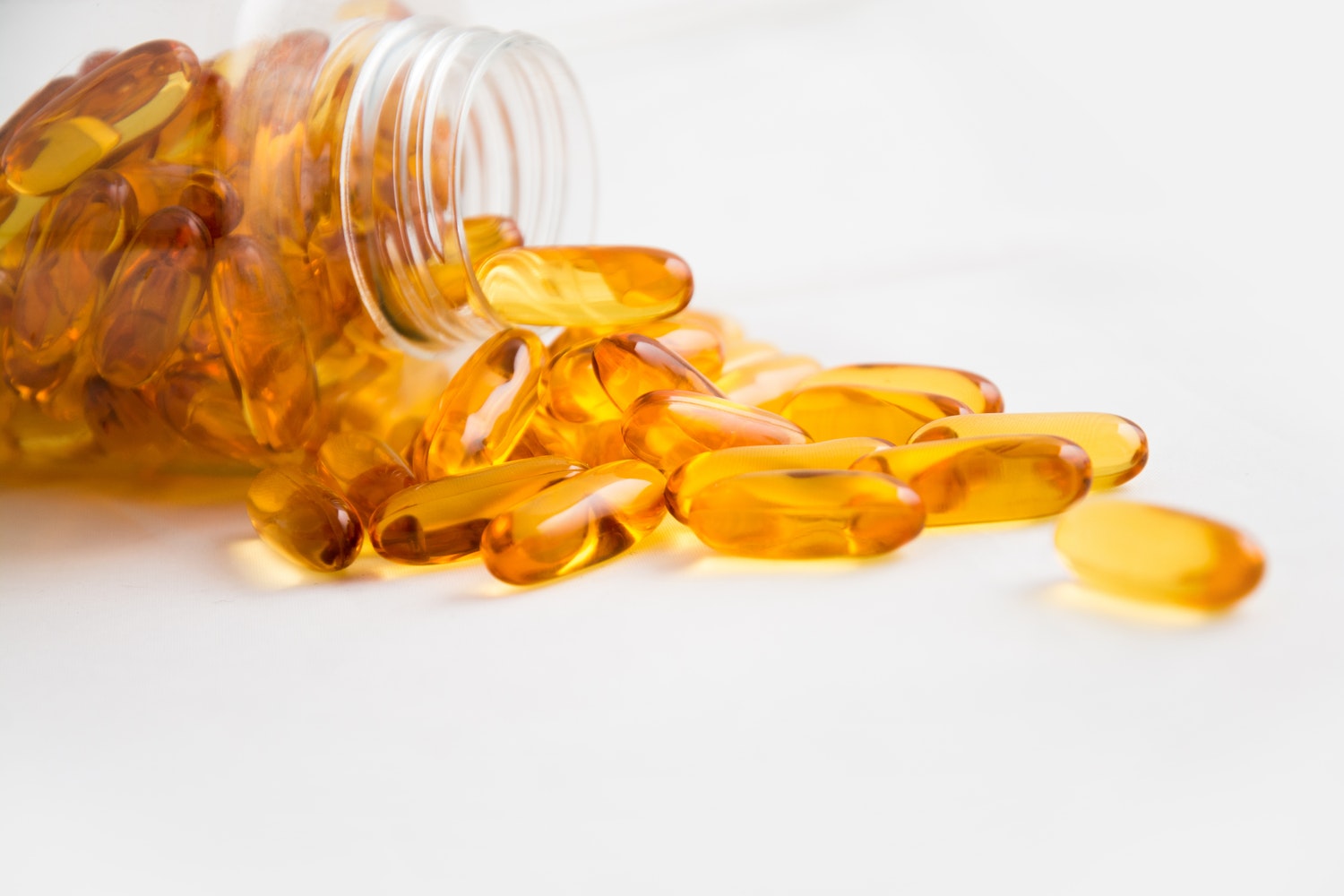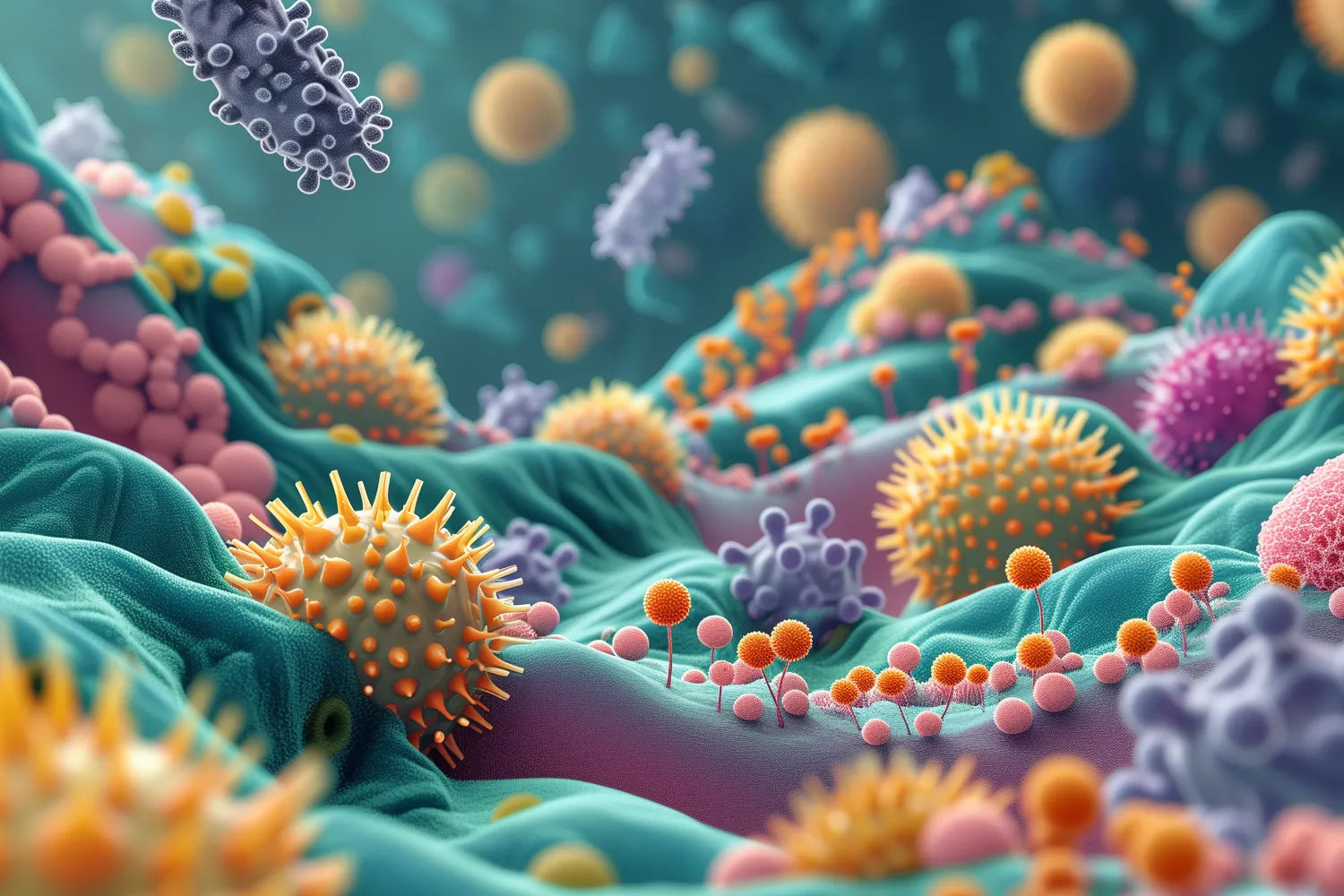
Dr. Eric Venn-Watson’s Highlights
Thick, flowing, shiny hair may be the stuff of shampoo commercials, but it is possible to capture some of that amazing hair health at home. Even if you weren’t first in line for Rapunzel-esque locks, you can take steps to nourish your hair as it grows, keeping it looking lustrous and shiny scientifically.
Let’s take a look at the science behind hair growth and health, and learn how the fatty acids can help you have more good hair days than bad.
It’s Really About Your Skin
You probably don’t think of skincare when you think of hair care, but the two coincide. This is because hair growth originates deep within hair follicles located in your skin.
Blood vessels carry nutrients to cells at the bottom of your hair follicles. The base of the hair follicles, called the bulb, is where new hair growth begins. Hair cells that are fed by blood vessels grow, divide, and begin forming the hair shaft, or what we see as a strand of hair.
Layer upon layer of these cells build up, forming a protein called keratin. Keratin is what makes up both your hair and your nails. Keratin isn’t living, so it’s true that the part of your hair you actually see is dead.
Hair Growth 101
Chances are you’d love to have longer or thicker hair. Both longer and thicker hair requires new hair growth, and even though there are a plethora of products that promise you both, few of them have scientific backing.
The hair growth cycle happens in three distinct phases: anagen, catagen, and telogen.
- Anagen. During the anagen phase, new hair grows. Most people will be able to grow a centimeter of hair per month. That means roughly six to seven inches of hair growth per year. During the anagen phase, keratin cells grow and divide. Hair can stay in the anagen phase for up to six years.
- Catagen. The catagen stage of hair growth is also referred to as the resting phase. During this phase, your hair officially stops growing. The portion of the hair shaft that stays inside the bulb hardens and attaches to the hair follicle. The catagen phase is the shortest phase of hair growth, and lasts between two to three weeks.
- Telogen. The final phase of hair growth is the official loss of a hair, which happens during the telogen phase. This hair fall phase can last up to 100 days. During this phase, the hair follicle relaxes which allows the strand of hair to fall out. It may seem like you lose a ton of hair per day, but keep in mind it is normal to lose between 25-100 hairs per day.
The takeaway from hair growth: it all happens inside your skin. The portion of hair that you can see is technically already dead, and scientifically incapable of becoming thicker or growing longer.
Instead of focusing on the hair you can see to promote hair growth and health, focus on the part you can’t see, where the growth actually happens.
Tips for Healthy Hair
To keep your hair healthy, you need regular trims, good personal grooming habits, and some good old-fashioned science to help nourish the hair follicles and keep the cells that form your hair functioning properly.
Here are the nutrients that matter the most:
- Iron. Iron (the nutrient, not the hot hair styling tool) helps keep your blood flowing properly, ensuring that your hair follicles are getting a constant flow of nutrients to grow new hair.
- Vitamin C. It’s not just for your immune system! Vitamin C helps support collagen production. Collagen is a foundational protein that your skin needs to stay healthy and function properly. In other words, if you’re getting enough collagen, your skin is primed and ready to make new hair.
- Vitamin A. Vitamin A is used regularly in topically applied haircare products, like serums and conditioners, to promote shine. However, vitamin A’s biggest hair benefit comes from how vitamin A interacts with your skin’s natural sebum production.
When your skin produces too much sebum, it can cause irritation to your scalp that can inhibit hair growth. Vitamin A helps your skin’s sebaceous glands self-regulate, ensuring they don’t produce too much oil, reducing irritation, and helping get your skin back into hair growth mode.
- Biotin. Biotin is a B vitamin that supports keratin production. If you’re deficient in biotin, you may experience increased hair loss. Biotin deficiency is rare, despite massive amounts of marketing surrounding biotin supplements. Unless you are actually deficient, there’s no evidence that taking a biotin supplement will increase your hair growth (or your nails, for that matter).
- Fatty acids. You know that fatty acids are essential and good for you, but they do more than just support heart health. These fatty acids include alpha-linolenic acid (ALA), eicosapentaenoic acid (EPA), and docosahexaenoic acid (DHA). Let’s deep dive into the health benefits they offer for your locks.
Fish Oil Benefits for Your Hair
Maybe your doctor has suggested you use fish oil supplements to support your heart, joints, and cognitive health. Fish oil can be derived from fatty fish or oily fish including salmon, mackerel, anchovies, sardines, and more.
The fatty acid contained in fish oil, ALA, is an essential fatty acid. That means your body needs it to operate, but can’t make it on its own. As such, you need to get omega-3 fatty acids from the foods you eat, or from a dietary supplement, like a fish oil capsule.
Several studies support the benefits of fish oil for hair growth. These studies indicate that fish oil may be able to keep your hair in the anagen stage of hair growth longer, by supporting the hair follicle and keeping it healthy.
Remember, hair growth starts and ends in the follicle, so a healthy hair follicle is key to keeping your hair growing strong (and continually).
According to these studies, essential nutrients like EPA and DHA helps your hair:
- Grow in the anagen phase, more than it would grow on its own
- Remain in the anagen phase longer, thus causing additional growth
- Stay nourished in the hair follicle
- Stay healthy and shiny
The problem with these studies is that, in some, there was no control group, and in others, the supplements weren’t limited to containing only fish oil. Many omega-3 supplements contain additional ingredients, which could mean that they work together to support hair growth.
There is in fact data supporting that fatty acids, including omega-3s, may contribute to healthier hair, but what happens if you don't want to take fish sources of omega-3s due to their side effects?
Side effects of fish oil supplements may include:
- Bad taste in the mouth
- Bad breath
- Unpleasant-smelling sweat
- Heartburn or indigestion
- Headaches
- Nausea
- Diarrhea
Healthy hair that grows as it should is really a matter of cellular health. When our cells are operational and healthy, our hair will grow as healthfully as possible and our scalp health can thrive.
To support healthy cells, there’s another fatty acid that is rapidly making a name for itself: pentadecanoic acid. According to recent studies, C:15:0 can support healthy hair in a number of ways.
A New Fatty Acid
Pentadecanoic acid is a mouthful, but it’s also known as C15:0, which we find rolls off the tongue just a bit easier.
C15:0 is an odd-chain, saturated fatty acid that a growing body of research supports is the first essential fatty acid to have been discovered in over 90 years (since the discovery of omega-3).
C15:0 helps support every cell in your body in important ways: by strengthening cell membranes, and increasing mitochondrial function.*
C15:0 can support hair and scalp health in several ways, including:
- C15:0 improves mitochondrial energy support of hair follicles, which is the mechanism of action attributed to improved hair growth in a clinical trial.
- C15:0 tames an overactive immune response: it helps to reduce a number of pro-inflammatory cytokines, which may keep our hair follicles healthy.
- C15:0 can break down scar tissues: This can clear the way for healthy hair cells to continue thriving and functioning.
- C15:0 can combat fungus: It can manage the overgrowth of bacteria and fungi, keeping our scalp healthy.
- C15:0 is a stable and good fat to feed our follicles, keeping our hair moisturized and shiny.
Elevate your cells. Elevate your self.
Elevate your cells. Elevate your self.
Buy NowCell Membranes
As we get older, our cell membranes can become flimsy, making them susceptible to external stressors that can cause your cells damage. When cells become damaged, they no longer grow and divide like they should, and the cell can ultimately die.
Cell growth is essential for growing newer, thicker, longer hair. C15:0 supports cellular health by getting incorporated into cell membranes and strengthening them.*
Mitochondrial Support
The mitochondria are the powerhouses of your cells. Mitochondria produce the energy required by the cell to carry out cellular processes (including growth). As we get older, our mitochondria become sluggish. When this happens, bodily processes, like hair growth, can begin to decline.
In addition to protecting your long-term health, restoration of mitochondrial function can also lead to healthier hair and skin.
C15:0 has been shown to improve mitochondrial function by 45%, and this may be another reason why some people taking a C15:0 supplement have reported healthier hair and skin.
Fatty15 for Hair and Total Body Health
C15:0 is found naturally in trace amounts in whole dairy products. As such, if you are not drinking whole fat milk or eating other full fat dairy products, your body may be deficient in this essential fatty acid.
Additionally, many foods that naturally have trace levels of the good saturated fat, C15:0, also have lots of calories, sugars, and much higher amounts of the "bad" saturated fats (like C16:0), which are associated with poorer health.
But now there is a new option.
Fatty15 is the first and only supplement to give you the pure, vegan-friendly, sustainably produced, award winning, one-calorie version of C15:0, known as FA15™ .
Fatty15 is easier to take than fish oil. You need less of it (100mg/day compared to 2,000-3,000mg/day), there’s only one ingredient, and you’ll never experience a fishy aftertaste.
Fatty15 can be an easy way to support your hair growth and increase your overall health. You can get fatty15 in a once a day, easy to take capsule that even comes in a completely sustainable glass bottle.
Give your hair (and your body) what it craves: essential fatty15 to support your cells and keep you living healthier, longer.*
Sources:
Healthy Hair and How to Get It|Ask The Scientists
Mackerel-Derived Fermented Fish Oil Promotes Hair Growth by Anagen-Stimulating Pathways|NCBI

Eric Venn-Watson M.D.
CEO, Co-Founder
Senior Scientist, Co-Founder
Eric is a physician, U.S. Navy veteran, and Co-founder and COO of Seraphina Therapeutics. Eric served over 25 years as a Navy and Marine Corps physician, working with the special forces community to improve their health and fitness. Seraphina Therapeutics is a health and wellness company dedicated to advancing global health through the discovery of essential fatty acids and micronutrient therapeutics.
You May Also Like...
10 Foods Good for Your Liver: The Ultimate Guide
Your liver does a lot for you. If it had a voice of its own, it might ask you to eat more veggies and cut back on your Old Fashioneds. Unfortunately, the liver doesn’t receive a lot of attention until...
How To Improve Your Gut Microbiome: 6 Tips
Interested in how to improve your gut microbiome? We’ve got six tips to help your gut thrive and improve your overall digestion.


